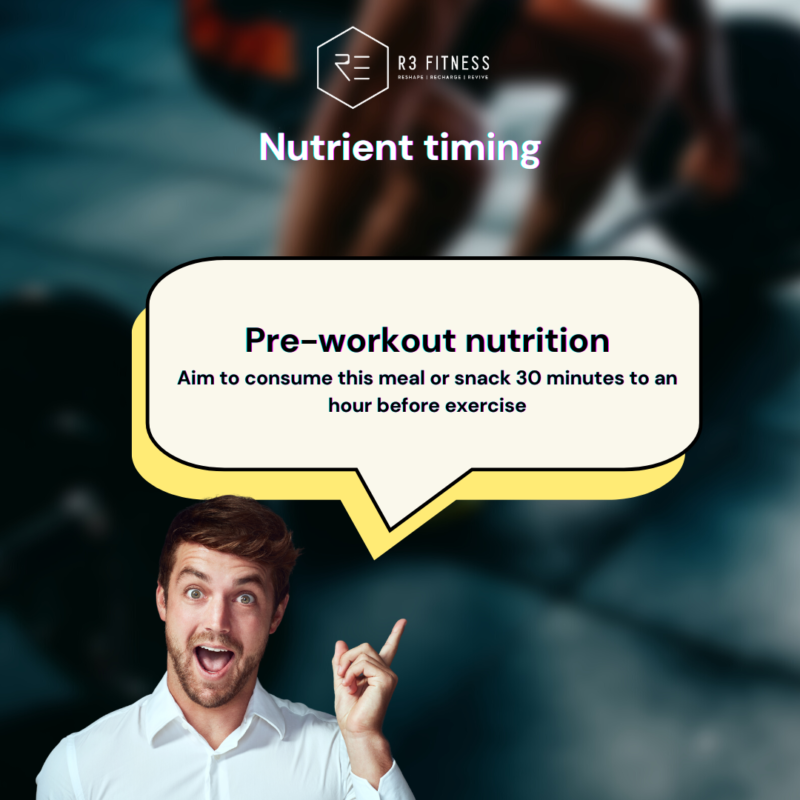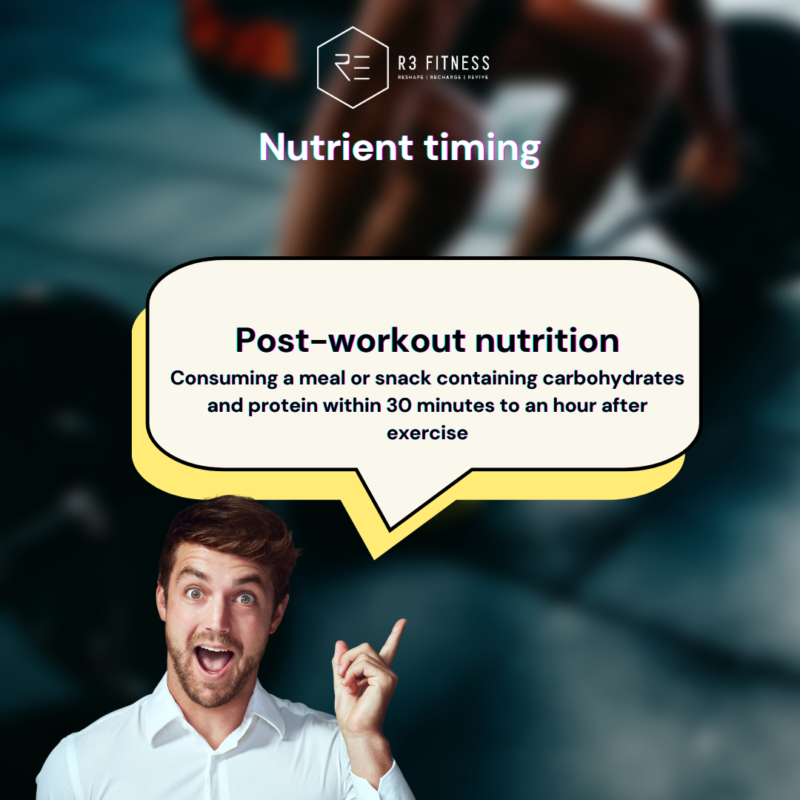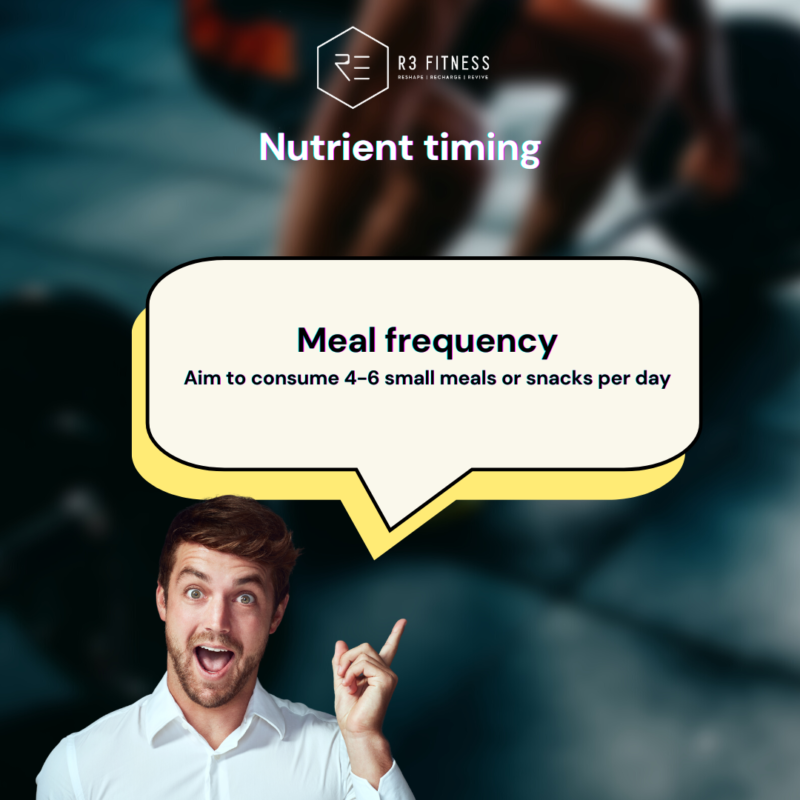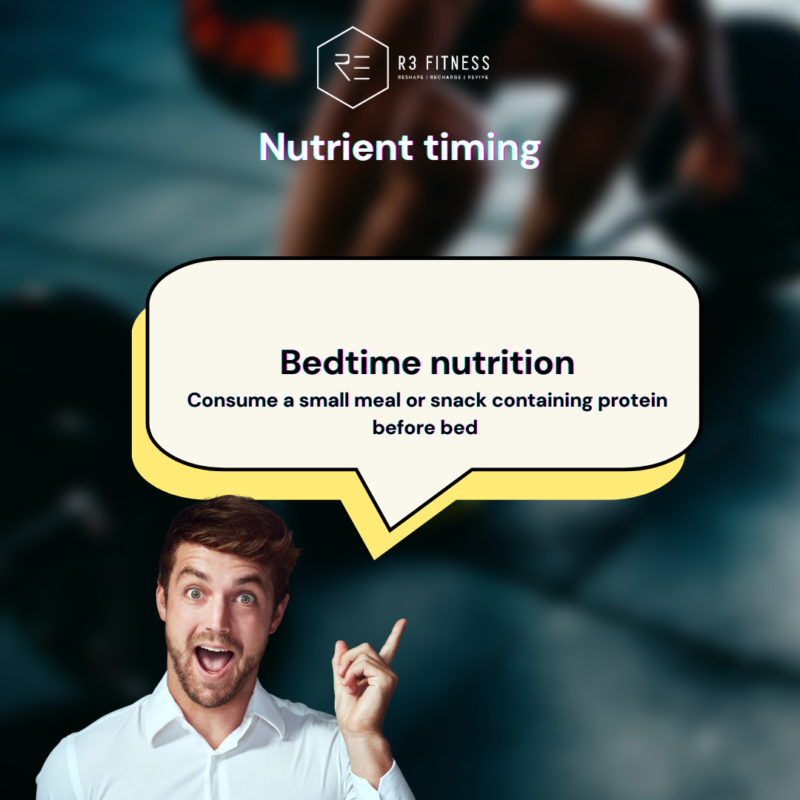Tips for food intake
Nutrient Timing
Nutrient timing is the practice of strategically timing nutrient intake throughout the day to optimize energy levels and support fitness goals. Here are some key points about nutrient timing and strategies for optimizing nutrient intake:

Pre-workout nutrition
Consuming a meal or snack containing carbohydrates and protein prior to exercise can provide the body with the fuel it needs to perform at a high level. Aim to consume this meal or snack 30 minutes to an hour before exercise.

During exercise nutrition
For longer-duration exercise, consuming carbohydrates in the form of sports drinks, gels, or bars can help to maintain energy levels and delay fatigue. It’s important to experiment with different types and amounts of carbohydrates to determine what works best for you.

Post-workout nutrition
Consuming a meal or snack containing carbohydrates and protein within 30 minutes to an hour after exercise can help to support recovery and promote muscle growth and repair. Aim to consume a meal or snack that provides a ratio of about 3:1 carbohydrates to protein.

Meal frequency
Eating smaller, more frequent meals throughout the day can help to regulate blood sugar levels and provide a steady source of energy. Aim to consume 4-6 small meals or snacks per day.

Bedtime nutrition
Consuming a small meal or snack containing protein before bed can help to support muscle protein synthesis and recovery overnight.
Overall, nutrient timing can be a useful tool for optimizing energy levels, supporting athletic performance, and promoting recovery. By strategically timing nutrient intake throughout the day and experimenting with different strategies, individuals can support their fitness goals and achieve optimal health and wellbeing.

